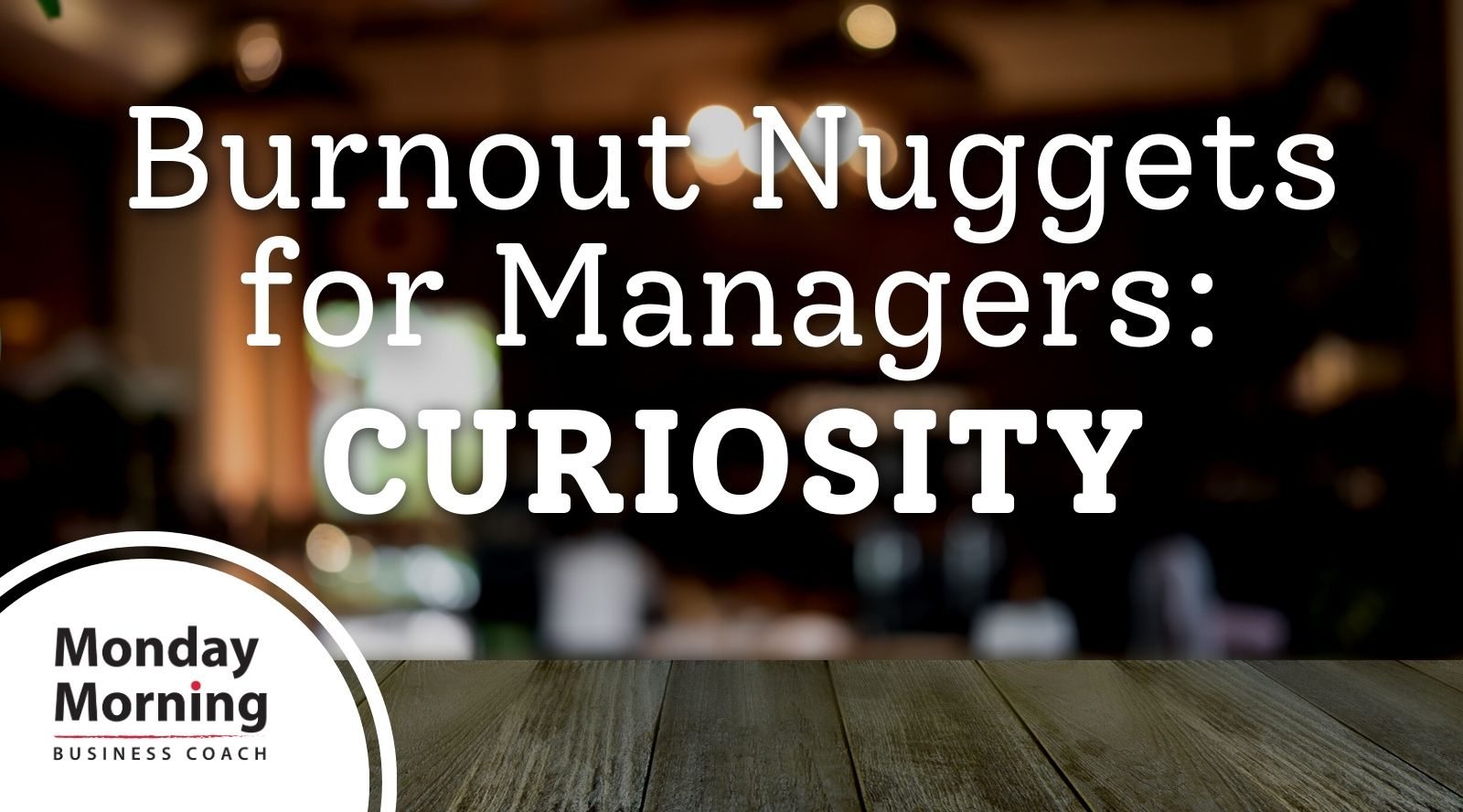Last week, in our post titled, Burnout Nuggets for Managers, we started a series to help managers and leaders navigate team burnout. In it, we noted that the common themes we see in the leaders who are successful in supporting their employees, are ones who model curiosity, caring, and connection.
- Curiosity: Genuinely ask how people are doing and what support from you would look like. As you have these conversations, remember to approach people as if you’re standing shoulder-to-shoulder, working toward their individual, team, and organizational success, together.
- Caring and Value: We’ve learned that people feel like they matter to you and belong to something larger than themselves, when you demonstrate that you care about them as humans and that you value their unique skills and contributions. Being specific when you see them contribute, and curious about how they’re doing during this wild time, will increase their felt experience of being an important member of the team.
- Connection: Building a sense of connection is not a one-and-done. True connection grows over time, by having shared experiences, dealing with success and failure together, talking about development needs, and in having each other’s backs. It can feel like extra work when you first lean in, but the increase in success, the decrease in drama and burnout, and the sense of engagement that fuels the team will accelerate all of your work.
Today, we’re talking a bit more about the importance of curiosity in helping your team with their burnout.
Curiosity begins with letting others know that you want to understand their experiences. When people feel heard, without worrying that they’ll be punished, they’ll be more apt to share their ideas, input, and needs with you and the team.
Below are some ideas for conversations and questions that can be used in team discussions:
- Things continue to be hard and uncertain for so many of us, and I’m struggling at times, too. I’m hoping we can all lean in and weather this together.
- I’d like to get a better understanding of your world right now and any thoughts you have on ways to improve it. While we might not be able to provide the exact support you need, we’ll do our best.
- What’s happening in your world as you deal with life’s current challenges?
- What would success look like for you?
- What type of work creates satisfaction for you as a team?
- What is getting in the way of you feeling successful as a team?
- Who are you collaborating with most often and who should you be collaborating with?
- If you could change one thing about the work, your roles, our culture, what would that be?
- What does support from me look like?
And then listen. Really listen. Summarize what you’ve heard them say and then clarify when needed. Finally, be sure to remind them what you will do with their input and how/when you’ll follow-up.
When you can listen with openness
and aren’t defensive about what others are saying,
you’ll be laying the foundation
for a culture of trust and belonging.
Take some time this week to get curious about your team’s experiences and listen for common themes and individual preferences. Then engage with them in creating new and better ways of working together that celebrate personal and professional health and wellness.
Remember, when people feel that they can ask for support, recommend reprioritizing their projects, or suggest a change in how they work, they will be healthier and more satisfied.
What one small pivot can you make in your conversations to lead with curiosity?
If you’d like burnout support
for you or your team,
contact us today.


